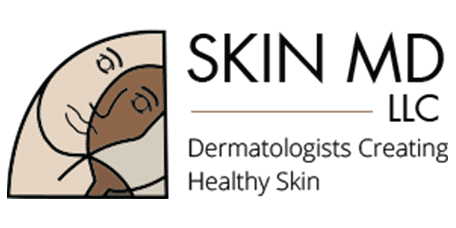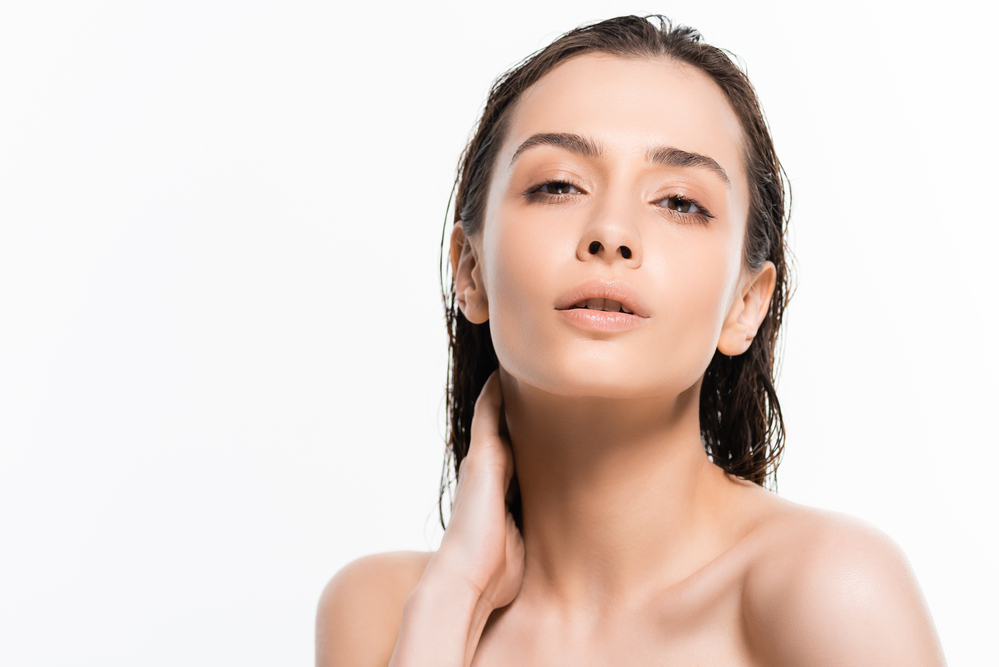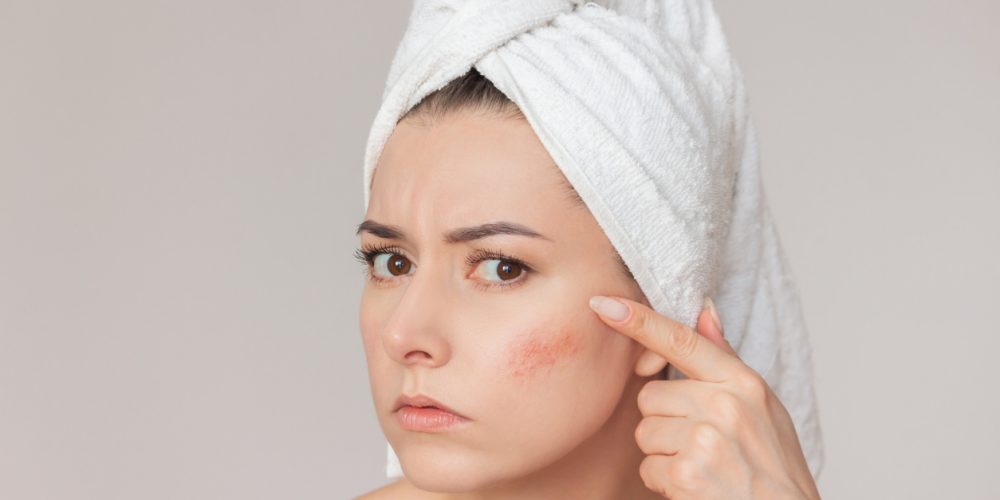Microneedling, also known as collagen induction therapy, is one of the most commonly performed advanced aesthetic treatments at SkinMD in Chicago, IL. This incredibly versatile treatment induces your skin’s collagen production system and can resolve virtually any cosmetic issue. Read on to learn more.
What You Should Avoid Before Microneedling
NSAIDs
You should avoid non-steroidal anti-inflammatory drugs (NSAIDs) in the week leading up to your microneedling treatment session. Bruising is caused by internal bleeding and NSAIDs thin the blood, making internal bleeding more likely to occur. To mitigate the risk of bruising after your microneedling treatment session, do not take any NSAIDs during the seven days before your session; if you feel pain, soreness or discomfort, use acetaminophen instead.
You should also avoid taking other drugs or nutritional supplements that are intended to thin the blood or may cause the side effect of blood-thinning. For example, you should avoid taking MAOIs if your psychiatrist advises you that it is safe to not take them for 72 hours before your session and several days after your session. Furthermore, you should avoid taking such nutritional supplements like vitamin E, fish oil, turmeric and ginger.
Accutane and Other Drugs and Supplements
Accutane is one of the most common acne medications on the market. Unfortunately, its active ingredient, isotretinoin is a retinoid. If you currently take this medication, ask your primary care physician if you can stop taking it and ask about an alternative that will not affect your collagen induction therapy treatment. You should not take Accutane within six months of starting treatment.
You should also avoid other medications, such as most other topical acne medications that include retinoids. Furthermore, do not take oral vitamin A1 (retinol) supplements. We will provide you with a comprehensive list of drugs and supplements you should avoid when you come in for your initial consultation after we determine that collagen induction therapy is appropriate for you.
Certain Hair Removal Methods
Shaving the treatment area in the week before your scheduled session is fine. However, you should not use alternative hair removal methods, such as electrolysis, hair removal creams, laser hair removal or waxing. Such hair removal methods increase skin sensitivity. Plan to not use such hair removal methods until eight days after your session.
Furthermore, you should avoid shaving the treatment area on the day of your session. Whether you shave the night before your session is up to you, however shaving on the day of your treatment may cause skin irritation. If you choose to shave the treatment area the night before your session, make sure the blades of your razor are sharp, you use shaving cream and you moisturize your skin afterward. You don’t want skin irritation the day of your session.
Heat-Based Cosmetic Treatments and Others
For two weeks leading up to your microneedling treatment session, avoid receiving cosmetic treatments that will irritate your skin. Treatments that increase skin sensitivity include IPL (intense pulsed light) therapy and laser treatments. During your initial consultation, we will provide you with a comprehensive list of treatments that you should avoid in the 14 days leading up to your first session and the first seven days following your sessions.
Other cosmetic treatments you should avoid include physical exfoliation, which may irritate your skin prior to treatment, and chemical peels. You should avoid chemical peels in the two weeks leading up to your treatment because chemical peels irritate your skin and often include vitamin A derivatives.
UV Damage
Do your best to avoid UV damage in the week leading up to your session. Avoiding tanning beds is only one step you should take in damaging your skin. You should also take steps to mitigate your risk of sunburn by wearing at least an SPF 30 broad-spectrum sunscreen that has not expired and reapplying it every four hours. You can also minimize the effects of sun exposure by minimizing your time spent outdoors between 10 and 4 and wearing a hat outside.
Cold Sores
If you have a history of cold sores, take an antiviral 48 hours prior to your treatment and the day of your session. If you forget to take an antiviral two days before your session and you have a cold sore at the treatment site on the day of your session, you will have to reschedule your appointment.
Makeup and Other Cosmestics
On the day of your treatment, do not apply any makeup, lotion or sunscreen to the treatment area. If you’re targeting your face, wash your face with a gentle facial cleanser before you come in for your appointment. If you are targeting your body, wash with a gentle soap that will not irritate your skin. The day of your treatment is not the appropriate time to experiment with a new soap with chemicals you may be allergic or sensitive to.
What You Should Avoid After Collagen Induction Therapy
NSAIDs
In the week following your microneedling treatment session, avoid taking non-steroidal anti-inflammatory drugs. Inflammation is a crucial part of the skin healing process and taking NSAIDs will slow the rate at which your skin heals. Furthermore, as stated previously, NSAIDs thin the blood, and you’ll want to avoid this in the first seven days following your microneedling treatment session.
Picking Your Skin
You should also avoid picking your skin in the week following your treatment session. At some point between three and five days after your treatment, your skin will look dry and start to peel. You may be tempted to “speed along” the peeling process by picking at the peeling skin or physically exfoliating it. This should not be done. At best, it will slow the healing process. At worst, it will slow the healing process and lead to a skin infection or acne outbreak.
If you pick at your skin while it is peeling, you run the risk of an infection or acne outbreak because the skin on your fingertips produces oil that can irritate the recently treated skin on your face. If you don’t feel confident that you can avoid touching your face, wear gloves. If you had your cheeks or chin treated, you can wear a mask.
Over-Moisturizing Your Skin
Avoid over-moisturizing during the peeling stage. Excess hydration can slow the peeling process and delay your final results.
That said, don’t let your skin become dry or tight either. If you have oily or normal skin, moisturize once daily using a gentle, fragrance-free moisturizer like Cetaphil, Aquaphor, or Vaseline. If your skin is naturally dry, moisturize twice daily.
Sweating
Do your best to avoid sweating during the first three days following your microneedling treatment session. Avoid steaming-hot showers or baths, jacuzzis, saunas and steam rooms. Do not engage in strenuous exercises, such as heavy weight lifting, swimming, intense spinning or indoor rowing. If you have a strenuous job that makes you sweat, take three days off from work.
Cosmetics
Do not use the cosmetics you usually incorporate into your daily routine for the first five to seven days after your treatment. If you can’t go a week without wearing makeup, try to go without wearing makeup until your skin starts to peel. Once your skin starts to peel, it is okay to wear mineral makeup. Once your skin finishes peeling, you may resume wearing your favorite cosmetics.
Ice
You should not apply ice to the treatment area or use it near the treatment area. Ice will impede the natural inflammatory process that your skin needs for healing. For the same reason, you should avoid herbal supplements used to fight inflammation, such as arnica supplements and bromelain (derived from pineapples). You should also avoid drinking pineapple juice and eating pineapples during the first week after treatment so you don’t consume too much bromelain.
Sleeping On Your Stomach or Side
If you received collagen induction therapy treatment on your face, you should avoid sleeping on your stomach or side for the first week after your session. Sleep on your back with your head elevated. If you don’t usually sleep on your back practice sleeping on your back for a couple of weeks before your first treatment.
You should practice sleeping on your back if you’re not used to sleeping on your back so you feel comfortable and can get adequate rest. If you usually toss and turn in your sleep, sleep in a recliner. If you don’t have a recliner you can sleep in, put pillows or rolls of bath towels on either side of you to prevent you from rolling.
Alcohol
Do not consume alcohol in the seven days following your treatment. Alcohol is a diuretic, meaning it has dehydrating properties. Unfortunately, being dehydrated will slow your skin’s healing process drastically. Furthermore, a side effect of consuming diuretics, like alcohol, is essential micronutrients are flushed out of your body.
Tobacco
Just as you should avoid alcohol to not impede your skin’s healing process, you should avoid consuming tobacco products for approximately the first week following your collagen induction therapy session. Tobacco products contain dozens of chemical compounds, including nicotine. Such products, which will drastically impede your skin’s healing process, include cigarettes, chewing tobacco, most e-liquids and smoking cessation tools, like nicotine gum and patches.
If you smoke or chew tobacco regularly, you may struggle to go cold turkey and avoid consuming nicotine. You may go through physical withdrawals for 72 hours, but after that, any struggle to not consume nicotine is all mental. When you’re tempted to have a smoke or dip, just remember that both your cravings and the trigger for your cravings are only temporary. Go for a walk, eat a crunchy snack or play a mobile game. You will get through it.
Learn More About Collagen Induction Therapy Today
Microneedling is a non-invasive, minimal-downtime treatment with transformative skin benefits. However, pre-treatment and post-treatment care are essential for the best results. Avoid things like Accutane, sun exposure, and aggressive cosmetic procedures beforehand. Post-treatment, steer clear of NSAIDs, alcohol, tobacco, and picking your skin. To learn more about this treatment, contact us now at SkinMD in Chicago, IL to book an appointment.



